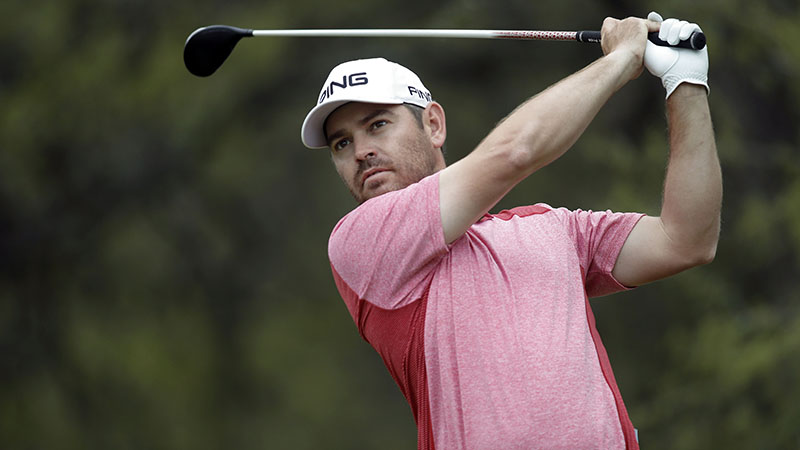From 156 Players to 4: Narrowing Down U.S. Open Field Using Recent Trends
USA TODAY Sports. Pictured: Louis Oosthuizen
It’s time to play the elimination game.
We’re just days away from the start of the 118th U.S. Open Championship, to be held at Shinnecock Hills Golf Club. And with so many elite golfers playing so well this year, it won’t be an easy one to predict. So let’s begin by peeling away some layers.
You’ve probably seen this idea before. An analyst will break down an entire field and then start eliminating players based on specific attributes — or lack thereof — from past champions. For instance, Hale Irwin is the oldest U.S. Open winner at 45, so all competitors older than 45 would be eliminated.
This isn’t that type of analysis.
Instead of past history — which should matter less at this event than most others, considering Shinnecock hasn’t held a U.S. Open in 14 years — I’m going to eliminate players based on recent trends. Very recent trends.
The purpose isn’t to predict a potential champion, necessarily, but to identify a handful of players whose profiles fit these recent trends.
Over the past two months, we’ve seen some definitive patterns from champions of the four biggest events.
It started with Patrick Reed at the Masters, then continued with Webb Simpson at The Players Championship, Francesco Molinari at the BMW PGA Championship and Bryson DeChambeau at the Memorial Tournament.
Granted, it’s an arbitrary number. If I’d extended this list to six, it would include Justin Rose and Jason Day, players ranked in the top 10 who have won the two next-biggest events over the past two months. For this elimination, though, we’ll base it solely on the four biggest winners in terms of ranking points.
Top 50
All four players were ranked in the world’s top 50 at the time of their victory — Reed 24th; Simpson 41st; Molinari 32nd; and DeChambeau 38th. And all four were trending in the right direction with recent results this year, but were still hungry since none had previously won.
We’ll get to all of that, but first, a quick examination into their rankings.
As you’ve undoubtedly noticed, none of these four was an unknown before his victory, yet they weren’t exactly superstars, either. They are — or at least, were — part of professional golf’s second tier. And so, for the sake of this exercise, we’re going to eliminate all those players who aren’t ranked similarly.
With each recent winner ranked inside the top 50, let’s first eliminate every player on the outside looking in. Among the big names who don’t make the cut:
Emiliano Grillo
Jason Dufner
Zach Johnson
Adam Scott
Aaron Wise
Tiger Woods
Shane Lowry
Now let’s make an unkinder cut.
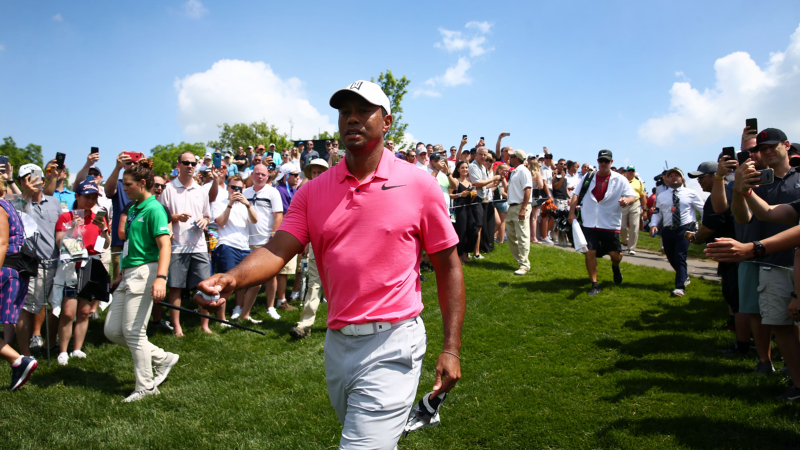
Credit: Caylor Arnold-USA TODAY Sports. Pictured: Tiger Woods
The Elites
The trend of recent winners of bigger events remains in that second tier, which means we’re going to eliminate everyone in the top 20. Does that mean Dustin Johnson or Justin Thomas can’t or won’t win the U.S. Open? Of course not. Let’s not be naïve. But in chasing this current pattern, the following players are out:
Dustin Johnson
Justin Thomas
Justin Rose
Jordan Spieth
Jon Rahm
Rory McIlroy
Rickie Fowler
Jason Day
Brooks Koepka
Hideki Matsuyama
Paul Casey
Tommy Fleetwood
Patrick Reed
Marc Leishman
Sergio Garcia
Alex Noren
Henrik Stenson
Francesco Molinari
Bubba Watson
Phil Mickelson
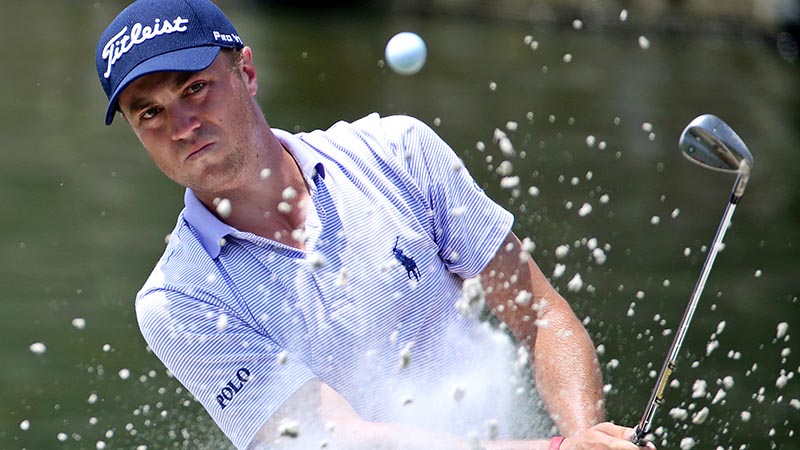
Peter Casey-USA TODAY Sports. Pictured: Justin Thomas
The Non-Winners
We’re down to 30 candidates now, so it’s time to extract an important component of those recent winners. As mentioned earlier, none of them had previously won this year. Whether it speaks to how difficult it is to win on the highest level or how difficult it is to remain hungry, that can be subject to debate.
But based on this pattern, let’s eliminate those remaining players who already have a victory on their ledger this year:
Webb Simpson
Bryson DeChambeau
Ian Poulter
Kiradech Aphibarnrat
Satoshi Kodaira
Gary Woodland
Haotong Li
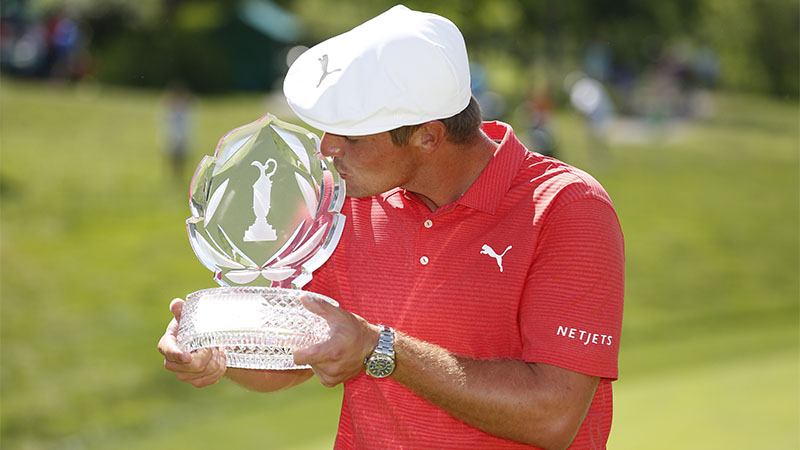
Peter Casey-USA TODAY Sports. Pictured: Justin Thomas
Recent Form
With seven more eliminated, we’re down to 23. This leads us to the most important part of the equation. So far, we’ve narrowed this list to second-tier players who haven’t won this year.
But to fit the trend we saw from Reed, Simpson, Molinari and DeChambeau, we also need to highlight guys who are playing well in the run-up to the event. That quartet each had at least three top-20 results in the six starts before their victories, so let's cross off any remaining players who don't qualify:
Tyrrell Hatton
Pat Perez
Matthew Fitzpatrick
Matt Kuchar
Xander Schauffele
Brian Harman
Kevin Kisner
Branden Grace
Charley Hoffman
Tony Finau
Daniel Berger
Ross Fisher
Cameron Smith
Charl Schwartzel
Si Woo Kim
Adam Hadwin
Brendan Steele
Peter Uihlein
Chez Reavie
That’s 19 more eliminated — and we’re left with four.
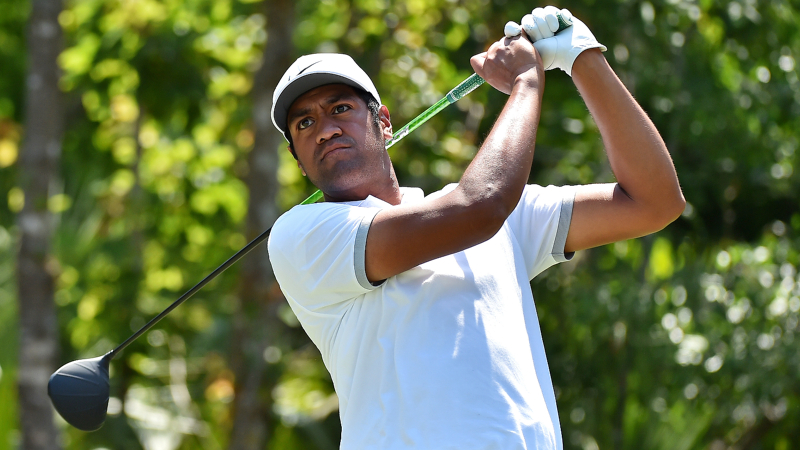
Jasen Vinlove-USA TODAY Sports. Pictured: Tony Finau
The Four Left Standing
These are the four players who fit the recent trends of Reed, Simpson, Molinari and DeChambeau, each of whom is ranked inside the top 50, outside the top 20, hasn’t yet won this year and has at least three top-20 results in their last six starts:
Rafa Cabrera-Bello
Patrick Cantlay
Louis Oosthuizen
Kyle Stanley
This doesn’t mean one of these four players will win — or even that they should be predicted to win.
(Among those who came closest to making this list: Grillo, who was ranked two spots out of the top 50; Finau and Uihlein, each of whom had three top-20s in their previous six starts prior to last week’s FedEx St. Jude Classic.)
What it means is that if the current trends continue, these are the U.S. Open competitors — four out of 156 in the field — who fit the parameters that could lead to a successful week.
How would you rate this article?

